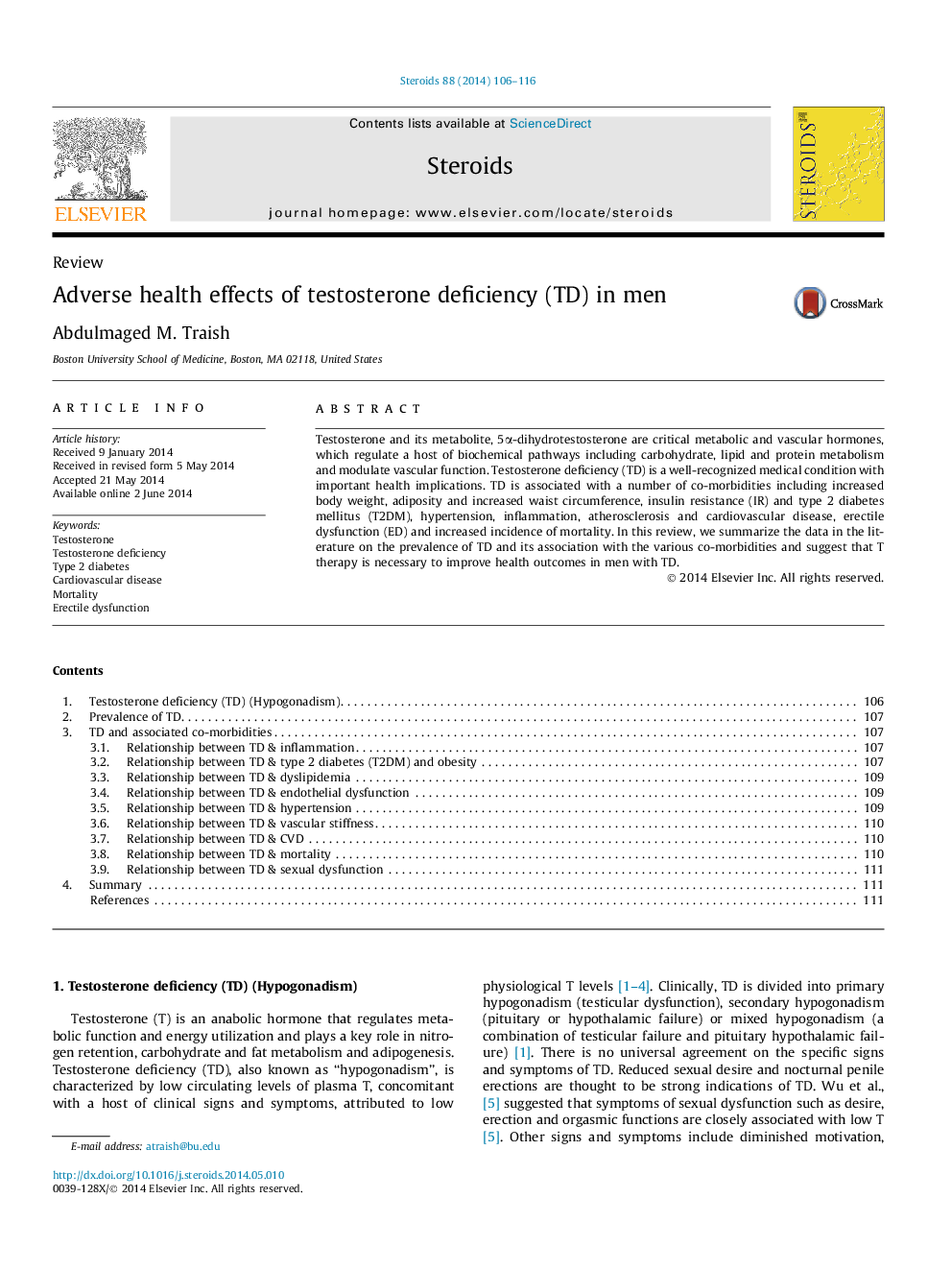| Article ID | Journal | Published Year | Pages | File Type |
|---|---|---|---|---|
| 2027893 | Steroids | 2014 | 11 Pages |
•Testosterone deficiency (TD) promotes inflammation and insulin resistance.•TD is associated with unfavorable lipid profiles and endothelial dysfunction.•TD is also associated with vascular stiffness, hypertension and atherosclerosis.•TD is associated with increased cardiovascular risk and increased risk of mortality.•TD is associated with increased sexual dysfunction and reduced quality of life.
Testosterone and its metabolite, 5α-dihydrotestosterone are critical metabolic and vascular hormones, which regulate a host of biochemical pathways including carbohydrate, lipid and protein metabolism and modulate vascular function. Testosterone deficiency (TD) is a well-recognized medical condition with important health implications. TD is associated with a number of co-morbidities including increased body weight, adiposity and increased waist circumference, insulin resistance (IR) and type 2 diabetes mellitus (T2DM), hypertension, inflammation, atherosclerosis and cardiovascular disease, erectile dysfunction (ED) and increased incidence of mortality. In this review, we summarize the data in the literature on the prevalence of TD and its association with the various co-morbidities and suggest that T therapy is necessary to improve health outcomes in men with TD.
